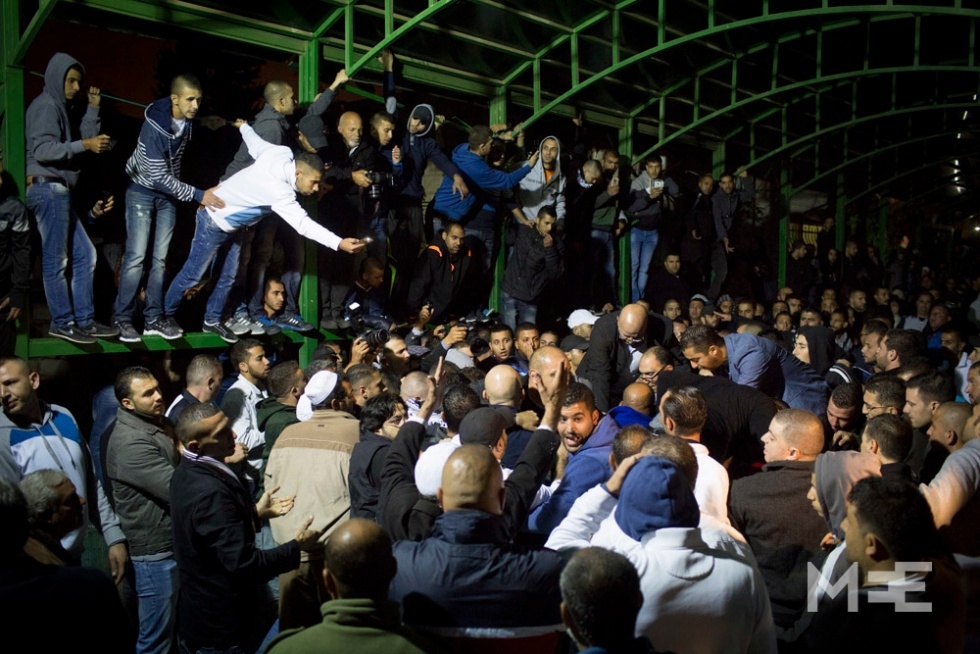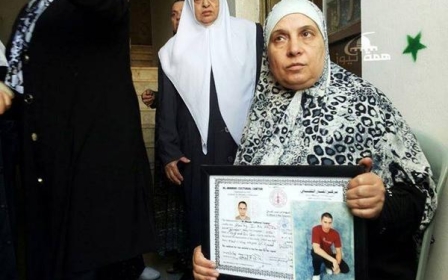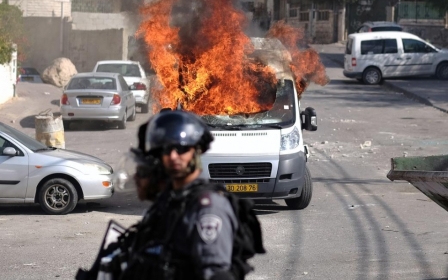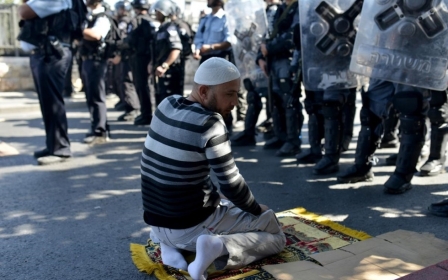Hundreds attend funeral of Hijazi as al-Aqsa compound re-opens

The al-Aqsa compound was reopened by Israeli police on Thursday evening, after being closed for the first time since 1967 in light of the killing of a Palestinian and attempted killing of a far-right Jewish rabbi.
Israeli police spokeswoman Luba Samri told AFP the shrine would open early Friday "for dawn prayers, after midnight" following its first closure in decades.
The move comes as hundreds defy police-imposed restrictions to attend the funeral of Mu'taz Hijazi, the Palestinian killed by police after allegedly shooting far-right Jewish activist Yehuda Glick in the Jerusalem neighbourhood of Abu Tor.
Israeli police had stipulated a maximum turnout of 45 people to the funeral, but hundreds of mostly young Palestinian men broke through the security barrier in order to attend.
Authorities informed the Hijazi family on Thursday evening that their home will be demolished, leaving many homeless.
Israel said its clampdown on the al-Aqsa, which is holy to Jews and Muslims alike, was a temporary measure aimed at calming tempers.
Because of fear of unrest at Friday midday prayers, police said entry for Muslim men would be restricted to those over 50.
There would be no restrictions on Muslim women.
Thursday's closure brought Arab and US calls for Muslim worshippers to be allowed access, and Palestinian president Mahmud Abbas condemned it as an Israeli "declaration of war".
Wednesday night's wounding of the rabbi and the subsequent killing of the suspected gunman sent tensions soaring to a new high, following months of almost daily clashes between Palestinians and Israeli police in Jerusalem's occupied eastern sector.
Earlier Thursday, State Department spokeswoman Jen Psaki said that the Haram al-Sharif, which contains the mosque, “must be re-opened to Muslim worshippers,” as she appealed for calm in the restive city.
“We’re extremely concerned by escalating tensions across Jerusalem and particularly surrounding the Haram al-Sharif, Temple Mount,” she said. “It is actually critical that all sides exercise restraint, refrain from provocative actions and rhetoric and preserve the status quo on the Haram al-Sharif/Temple Mount in word and in practice.”
Officials from the Islamic Waqf which administers the compound said it was the first closure since Israel seized Arab east Jerusalem during the 1967 Six-Day War.
"This dangerous Israeli escalation is a declaration of war on the Palestinian people and its sacred places and on the Arab and Islamic nation," Abbas said through his spokesman Nabil Abu Rudeina, warning it would only fuel "more tension and instability".
For Muslims, al-Aqsa represents the world's third holiest site while Jews refer to the area as the Temple Mount, claiming it was the site of two Jewish temples in ancient times.
Israel occupied East Jerusalem during the 1967 Middle East War. It later annexed the holy city in 1980, claiming it as the capital of the self-proclaimed Jewish state – a move never recognized by the international community.
In September 2000, a visit to the site by controversial Israeli politician Ariel Sharon sparked what later became known as the "Second Intifada," a popular uprising against Israeli occupation in which thousands of Palestinians and Israelis were killed.
Middle East Eye propose une couverture et une analyse indépendantes et incomparables du Moyen-Orient, de l’Afrique du Nord et d’autres régions du monde. Pour en savoir plus sur la reprise de ce contenu et les frais qui s’appliquent, veuillez remplir ce formulaire [en anglais]. Pour en savoir plus sur MEE, cliquez ici [en anglais].




